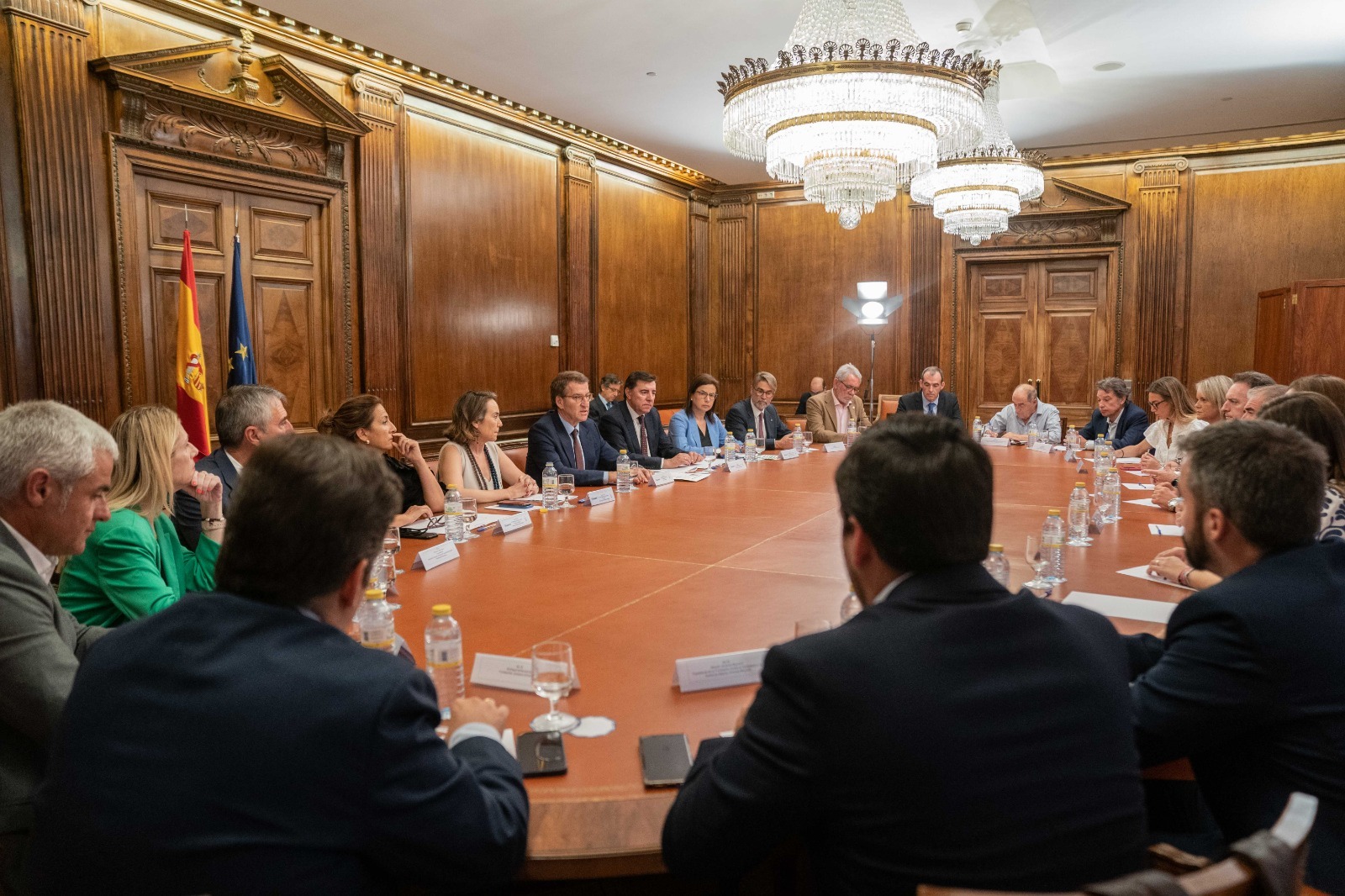Alberto Núñez Feijóo has met “privately” with the representatives of the main associations of victims of terrorism in Congress and has promised with them to repeal the Law of Democratic Memory agreed by the Government of Pedro Sánchez with Bildu. For more than an hour and a half, the PP leader spoke with the representatives of 19 victims’ associations.
The meeting took place just before the controversial law was voted. The PP had summoned the victims with just 48 hours and even so those who represent 19 associations have attended. Among others, the AVT, Dignity and Justice, Victims of the State Security Forces and Bodies, Victims of 11-M…
Núñez Feijóo described as “very dangerous” the new law of the Executive supported by Bildu considering that it tries to balance “victims and executioners”. He assured that he had the impression that the Executive had adopted a “dangerous position” and that “it hurt him” that this law was presented coinciding with the 25th anniversary of the crime of Miguel Ángel Blanco “because of what that crime meant.”
The victims highlighted the contrast of this call with the silence that the President of the Government, Pedro Sánchez, has maintained and maintains with the victims. “He has never met with us,” says one of the attendees at the meeting.
They assure that Feijóo’s commitment to the victims has been clear: repeal the so-called law of democratic memory, “the first thing as soon as it reaches the Government.”
As for specific situations, the leader of the PP clearly positioned himself in favor of persecuting all those who have ordered the attacks. The actions that are being carried out in the National High Court against the heads of ETA for indirect authorship have been clearly defended by Feijóo before the victims.
He also explained that the recommendations expressed by the EU to act against ETA will also be included in parliamentary proposals, specifically those that refer fundamentally to the prescription of ETA’s crimes.
From one of the associations the door was opened to an outlawing of Bildu, to which the president of the PP avoided clearly positioning himself, but he did send a message: the problem is that the Government has Bildu.
Regarding the prison dynamics that is followed from the Ministry of the Interior, he also positioned himself in favor of the existence of “effective collaboration” of the prisoners with the Justice and with the State Security Forces. And he also had a memory for the 379 ETA crimes pending resolution. The meeting was also attended by associations of victims of 11-M.
Conforms to The Trust Project criteria
















